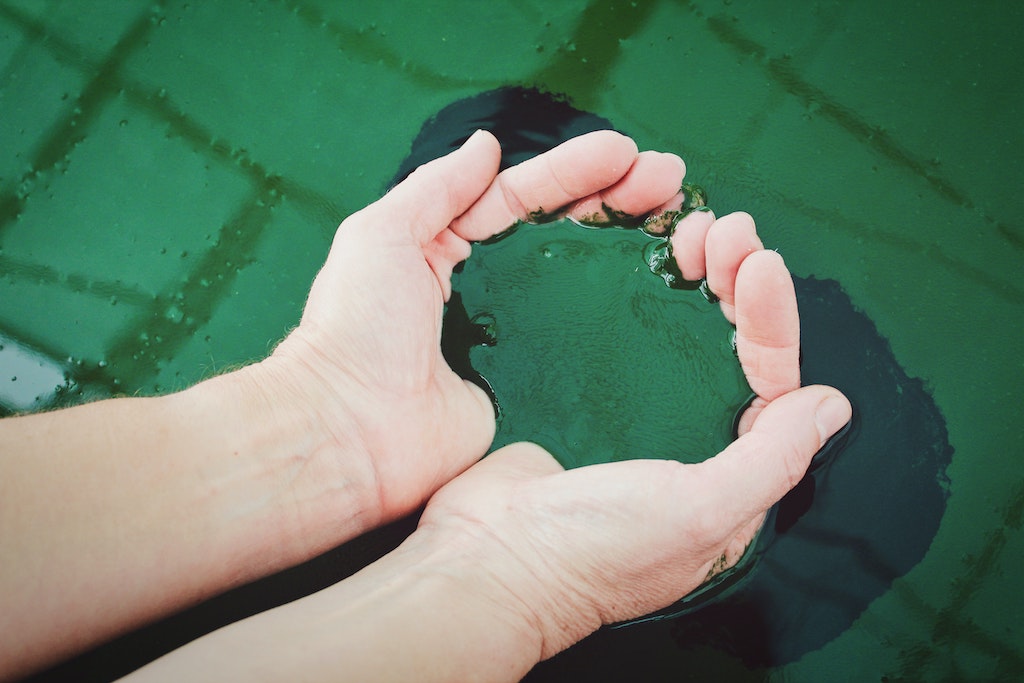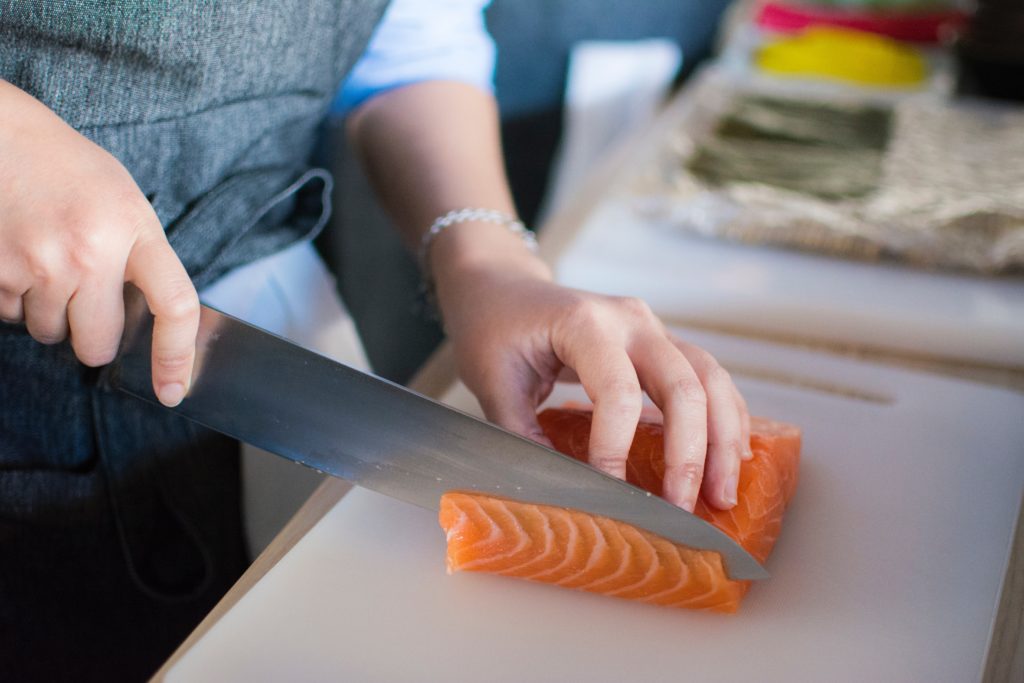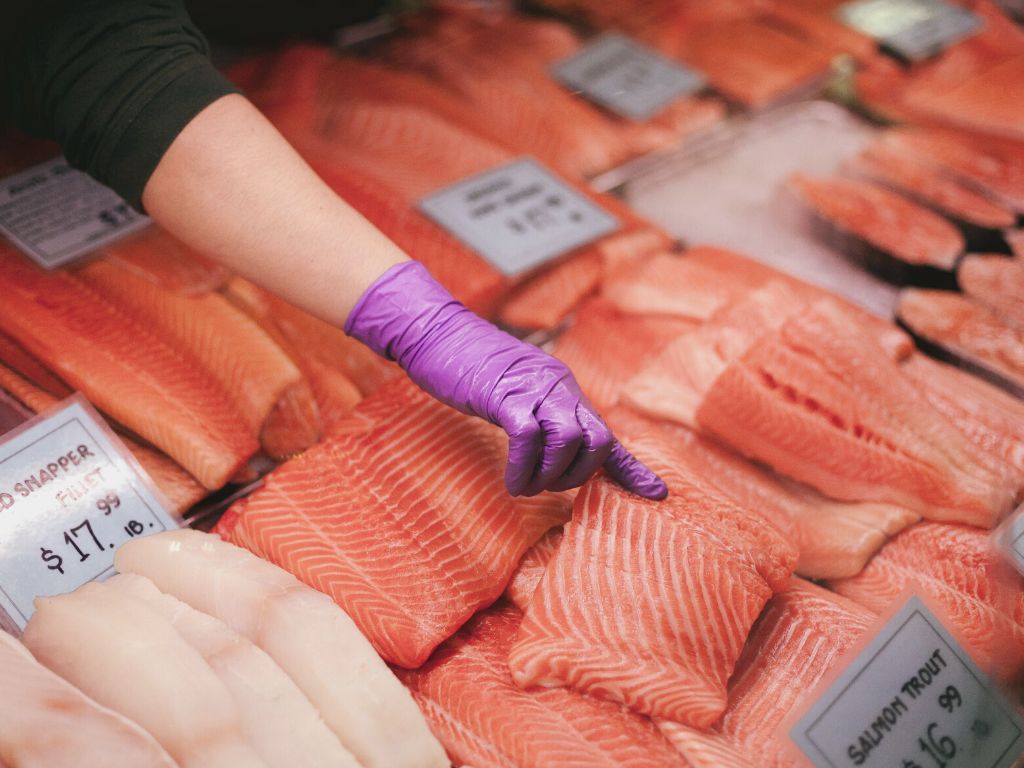New Partnership Aims to Put Spirulina at the Forefront of Vegan Seafood
4 Mins Read
A new partnership between Haifa Group Ltd. and SimpliiGood by AlgaeCore Technologies Ltd. aims to bring more upstream vegan protein opportunities to the freshwater algae spirulina while creating a sustainable circular carbon economy.
Israel-based Haifa Group and SimpliiGood say they’re partnering up to optimize the SimpliiGood spirulina supply chain with a specific focus on the plant-based protein sector — including the development of a spirulina-based smoked salmon.
The partnership is also positioned to help both companies move the needle on their net-zero goals.
Sustainable, scalable protein
Under the new partnership, the companies say they will work to enhance sustainability and reduce the carbon footprint for both entities with novel tech and product development.
“This important milestone demonstrates the maturity and potential of the entire sector, not just of our company,” Baruch Dach, SimpliiGood founder and CTO, said in a statement. “It will boost our supply chain efficiency, reliability and scalability, making our spirulina an even more affordable, resilient and trustworthy food source for the future of food.”

The companies say they will work to perfect Haifa’s ready-to-use nutrient mixtures for use in commercial applications with SimpliiGood’s spirulina.
“Standardization and predictability will make our spirulina more uniform – while maintaining high protein and antioxidant composition,” Lior Shalev, co-founder and CEO of SimpliiGood, said in a statement. “SimpliiGood will earn a strong competitive market advantage from these benefits within six months, and Haifa Group will expand its product portfolio to include these new products.
“Now more than ever, food products rely on secure, strong supply chains. As a vertically integrated operation sourced by the Haifa Group partnership, we will be empowered with broad perspective and control across the entire value chain,” Shalev said.
The collaboration will also support expanded research and development efforts.
“We believe that this win-win farm-to-fork collaboration will meet the global needs in feeding microalga as a wide source of protein, and serve both companies well,” said Natan Feldman, Haifa Group VP Marketing, Business development & innovations. “We made a strategic decision to enter the microalgae market and selected SimpliiGood following a meticulous search. We found their long-term vision fit hand-in-glove with ours; their commitment to the planet inspiring.”
Shalev says that Haifa Group brings extensive crop-nutrition optimization talent to the table. “The group’s pioneering R&D subject matter expertise is ideal for our big picture plans.”
Net-zero protein
Part of the companies’ net-zero goals will come by way of converting upcycle waste to spirulina. “Carbon dioxide is nature’s best source for spirulina growth during photosynthesis,” the companies say. Haifa Group produces CO2 during product manufacturing; the companies will build side-by-side production plants in Israel’s Negev Desert to pass carbon dioxide from the Haifa Group plant to the SimpliiGood spirulina production facility. “This process, which will transform CO2 pound-for-pound into spirulina, will both reduce waste and enable sustainable carbon fixation.”
Haifa’s waste stream could prove fit to support SimpliiGood’s microalgae production. The company says it will evaluate the potential for heat, nutrients, and compounds including nitrogen — a key protein building block.

“Leveraging the full power of upcycled synergies, the entire operation will do its part to achieve net zero. It will minimize the environmental footprint of both partners while maximizing efficiency, cost effectiveness, and quality over the long term,” Feldman says.
According to Dach, Haifa’s proprietary development will enable SimpliiGood to expand into “game-changing mainstream plant-based foods” including the first protein-rich smoked salmon steak made predominantly from spirulina.
“This innovation has been gaining momentum and recently attracted the attention of the global food industry,” Dach said. “Our ability to produce fresh spirulina-based products in a market that focuses heavily on dried spirulina is a major differentiator for us and a huge leap forward for consumers seeking appealing plant-based proteins.”
Recent Acumen Research and Consulting data show the global spirulina market is expected to surpass $1.16 billion 2030, growing at a 10.4 percent CAGR between 2022 and 2030.
“The SimpliiGood-Haifa Group collaboration takes us within reach of our goal to be the world’s largest net-zero spirulina cultivator and producer,” said Shalev.



